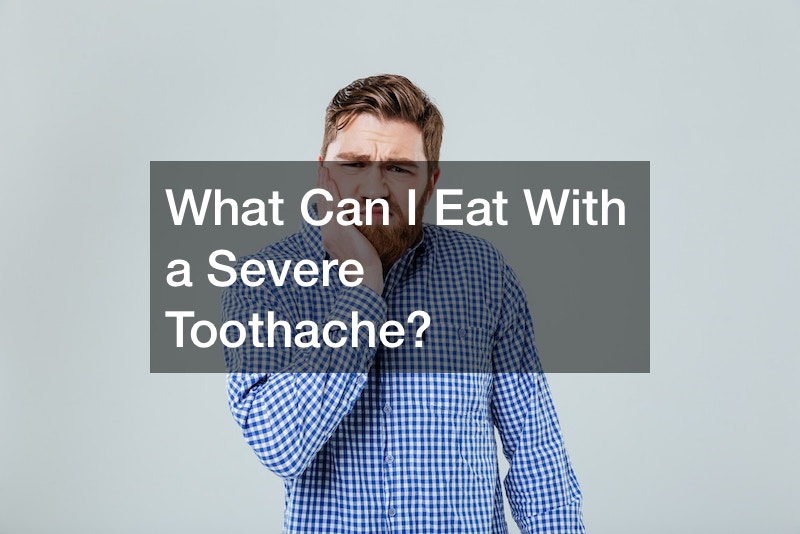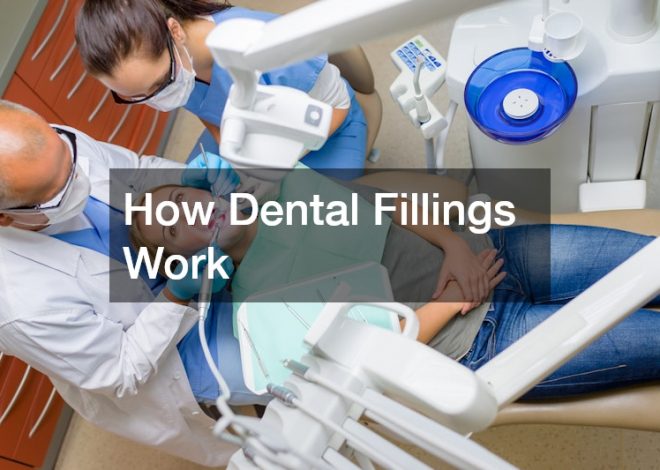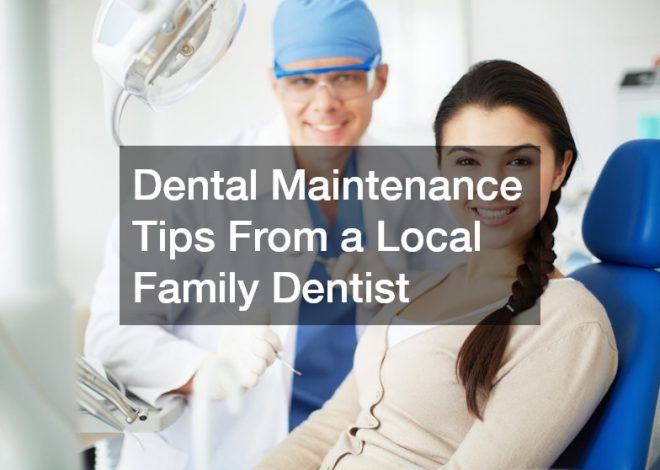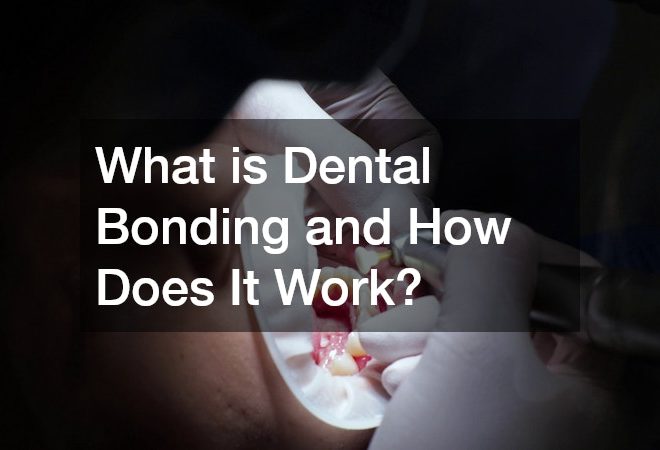
What Can I Eat With a Severe Toothache?

What can I eat with a severe toothache? A toothache is one of the worst types of pain. Unfortunately, it is a common dental problem that affects millions of people and can be unbearable. But pain is not even the worst part of a toothache – it can also affect other areas of your life, for example, your eating habits.
There are several reasons why you might be experiencing a toothache, from cavities to infected gums, dental injury, and more. Whatever the reason, any slight irritation of your teeth can cause the pain to worsen to unbearable levels. Therefore, you must be careful about what you put in your mouth. This article looks at various eating tips and other advice that can help you if you are asking yourself, ‘What can I eat with a severe toothache?’
Are you wondering, ‘What can I eat with a severe toothache?’ The best thing to do when experiencing unbearable tooth pain is to get the problem treated as soon as possible. However, before that, you will need to eat. Below are a few tips that will help you avoid escalating your toothache.
Don’t Chew Gum

If you’re looking for answers to ‘What can I eat with a severe toothache?’ chewing is not on the list of advisable things to eat. There’s a lot of debate on whether chewing gum is good or bad for the teeth. However, when it comes to toothache, especially severe pain, chewing gum is a huge no.
The problem with gum is that chewing puts a lot of pressure on the bones, teeth, and gums. And should this pressure reach the affected tooth, it can worsen the pain or cause the toothache to flare up again if the pain was already subsiding.
Besides putting too much pressure on your teeth, some chewing gums also contain sugar, which can irritate sensitive teeth. Also, chewing gum can erode the teeth’ enamel, increasing tooth sensitivity. Therefore, chewing on a piece of gum when you have a severe toothache is not a good idea.
Another major issue with chewing gum is that it can cause damage to dental work. The pressure exerted on the teeth, gums, and jawbone can loosen fillings, crowns, veneers, braces, dentures, and other works done by cosmetic dentists. Therefore, you should never chew gum when you have a severe toothache, mainly if the pain results from recent dental work.
Don’t Eat Sweets for a While
Are you still wondering, “What can I eat with a severe toothache?” It’s not sweets! Some people will tell you that you can enjoy candy if you take care of your teeth and schedule regular dental exams. However, when you’re suffering from a toothache, you should avoid eating sweets at all costs.
One of the most significant issues with sweets is that they are very sugary. Therefore, they can irritate your problematic tooth, causing more pain. Besides being sugary, candies can also be hard or chewy and sticky. These are two top things you must avoid when you have a severe toothache.
Hardy sweets can put too much pressure on your already compromised tooth or cause further tooth damage. On the other hand, sticky candy can get stuck in the affected tooth, causing severe irritation. This can cause the pain to increase tenfold, which can be very uncomfortable.
Don’t Drink Sugary or Alcoholic Beverages

Certain drinks are something else you might need to avoid if you’re asking, “What can I eat with a severe toothache?” These include sugary and alcoholic beverages.
As stated above, sugars are bad for your teeth when experiencing a toothache. Therefore, you should avoid sugary beverages as they can irritate your mouth, causing the pain to increase. Additionally, most beverages – sodas, sports drinks, and juices – contain acids. These acids can also irritate the teeth and gums, causing the pain to increase. They can also erode the enamel, increasing the sensitivity of your problematic teeth.
Like sugary drinks, alcoholic beverages are a terrible idea when suffering from severe toothache. While there’s a popular myth that you can cure tooth pain with alcohol, the truth is, it’s only likely to aggravate the situation. This is because most alcoholic drinks have high amounts of sugar and acidity.
Therefore, drinking alcohol when you suffer from a severe toothache can further inflame your affected teeth or gums, causing the pain to increase. So, instead of attempting this ‘old wives’ remedy, you are better off booking a dentist appointment for proper dental treatment.
Cut Your Food Into Smaller Pieces
When suffering from severe tooth pain, most everyday healthy foods are okay to eat. However, you need to avoid excessive chewing to avoid aggravating the affected teeth. And one of the best ways of doing this is to cut your food down into tiny pieces, especially when dealing with foods such as meat. This way, you will chew and swallow your food easily – without putting too much pressure on your teeth.
Besides cutting your food into smaller chunks, you can consider other ways of making your food easier to chew and swallow. For example, you can mash your potatoes – and most vegetables – into a smooth puree, which doesn’t require much chewing. For other foods that are not easily mashed, e.g., meats, you can cook them till tender and soft, then blend them.
Don’t Eat Anything Too Crunchy

Are you still wondering, “What can I eat with a severe toothache?” You can eat many types of foods, such as fruits (bananas, pear, apricots, etc.), potatoes, eggs, vegetables, puddings, etc. However, you should avoid eating anything too crunchy.
Crunchy food, especially snacks like crisps, popcorn, and pretzels, can harm your dental health. On top of being hard and chewy, they tend to break off and stick between your teeth, which can be an uncomfortable experience in a normal situation. However, when you are suffering from a toothache, such foods can aggravate your teeth and gums, causing the pain to worsen.
Besides crunchy snacks, you should also avoid crunchy healthy foods such as carrots and apples when you have a severe toothache. Usually, these foods are good for your dental health, as they can help keep your teeth clean, healthy, and strong. However, these foods can put too much pressure on your teeth or gums when suffering from tooth pain. This can irritate and inflame them, causing the pain to worsen and requiring you to visit an emergency dentist.
Make Soft Foods Like Soup
If you’re still asking, ‘What can I eat with a severe toothache?’ you should consider something soft like soup. This is a solution you would expect from a pediatric dentist when treating children’s dental health issues. However, it can work wonders when searching for foods that will not inflame your mouth or teeth further.
As stated above, hard and chewy food are the worst offenders when you suffer from severe toothache. Soups are the perfect solution as they are neither hard nor chewy and are easy to swallow. Therefore, you can eat to your fill without hurting your affected teeth.
Besides soup, you can also eat other soft foods that only require a little chewing. These include pasta, pancakes, custards, gelatin, pudding, etc. However, you should be careful not to put anything that can irritate your teeth or gums in these foods. This includes spices, too much salt, acidic foods (for example, lime juice), vinegar, etc.
Don’t Eat or Drink Anything Too Hot or Cold

If you’re wondering, ‘What can I eat with a severe toothache?’ you should try as much as possible to avoid anything too hot or too cold. One of the leading causes of tooth pain is sensitivity. As a result, sudden changes in temperature caused by drinking or eating hot or cold food and drink can cause sharp jolts of pain, which can cause your toothache to worsen.
For toothache caused by other reasons, for example, tooth extraction or gum infection, eating or drinking something hot can inflame your teeth or gum tissue, causing the pain to worsen. Cold food and drinks can also cause your toothache to be worse if you have a broken or infected tooth or exposed nerve endings. Therefore, it is best to stick to warm foods and drinks that will not aggravate your mouth.
However, in some cases, drinking something cold can help alleviate your toothache. For example, a cold drink, such as iced water, can temporarily relieve pain after tooth extraction. Unfortunately, this will not work in all cases, so your best option is to try and see if it works for you.
Talk to Your Insurance Provider About Treatment
If you have been experiencing eating issues due to a severe toothache, you’ll need to treat it. However, before visiting a dentist, it might be wise to talk with your dental insurance provider. This can help you to maximize your dental coverage, thus guaranteeing that you get the best treatment possible.
To start with, you should find the treatment options covered by your insurance plan. On top of that, you will want to know how much of the treatment is covered – for example, some insurance providers might cover 100% of the healthcare expenses, while others might only cover 80% or 50%. Therefore, knowing this information will prepare you for your dental visit and, if necessary, give you time to raise funds for any treatment options not covered.
While talking to your insurance provider, you should also inquire whether your dental health care plan allows you to choose your dentist. With some plans, you are given the option of choosing your preferred provider organization. However, other providers might require you to visit a dentist from their list of accepted dental offices.
Meet With a Dentist to Discuss Options

The next step in dealing with your severe toothache problem is to visit a dentist to discuss your treatment option. If you already have a regular dentist, you only need to book an appointment. However, if you don’t, you should shop around a bit to find an excellent dental office.
Luckily, most dental clinics have an online presence, and you only need to search for dentists around your area to get several options. Some dentists also offer a virtual doctor visit, allowing you to consult on your problem immediately.
Once you meet with a dentist, you can discuss possible treatment options. To start with, you can expect pain relief medication to help alleviate the pain. This can be a non-steroidal anti-inflammatory drug or another pain relief medication with a low opioid dose. However, you might also be offered an iv treatment for more severe tooth pain.
After alleviating the pain, the treatment options will depend on the cause of the toothache. For example, if the pain is caused by cavities, your dentist will offer fillings and possibly a root canal – if your teeth are infected. For inflamed or infected gums, you can expect antibiotics treatment to remove the infection. Other treatment options include tooth extraction (for severely damaged teeth), orthodontic care (braces, bit correction, etc.), and tooth restoration (crowns, veneers, etc.)
Familiarize Yourself With Referred Pain and Treatment Benefits
Are you in a lot of pain and wondering, ‘What can I eat with a severe toothache?’ You might be surprised to learn that your teeth might not be the issue. Sometimes, a toothache can occur because of referred pain, where the pain in another part of your body is transferred to your teeth. Some possible reasons that might cause referred tooth pain include heart and lung problems, respiratory health issues, back pain, cardiac arrest, cancer, etc.
With referred tooth pain, the only long-term solution is to treat the root cause of the problem. For example, if the problem is is to back pain, then receiving back pain reliever medication will help stop the toothache. Unfortunately, with referred pain, diagnosing and pinpointing the root cause of the problem might be extremely hard. Therefore, you need to visit your dentist immediately for a proper diagnosis.
Are you asking, “What can I eat with a severe toothache?’ Tooth pain – even the mildest one – can be uncomfortable. However, when the pain reaches severe levels, it can become unbearable, especially when you have to eat or drink something. Lucky for you, the above are some top tips on what to eat – and not eat – when you suffer from a severe toothache. However, besides choosing safe foods and drinks, you will need to treat your toothache to alleviate the pain and preserve your teeth.


